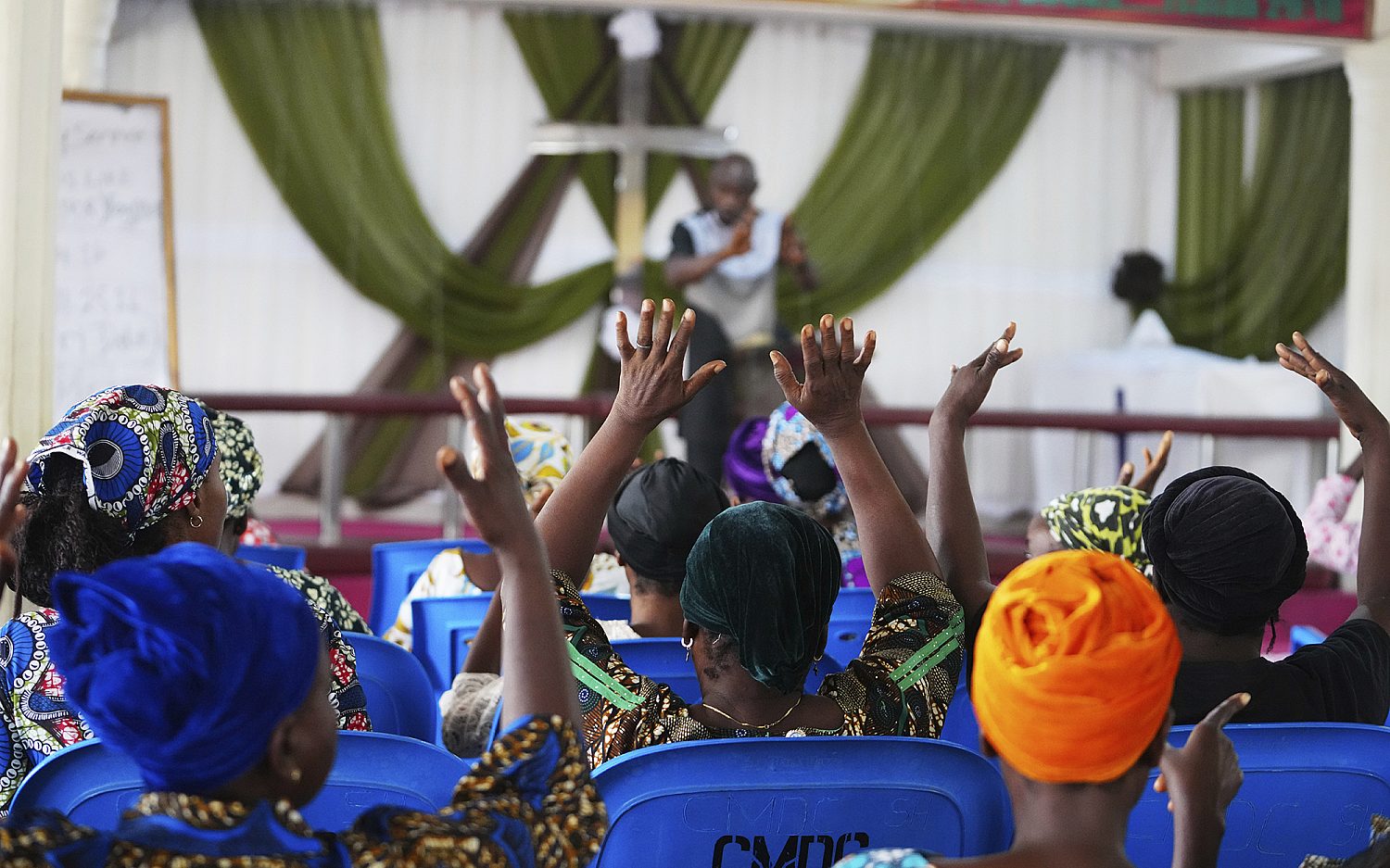Reluctant departures
Gulf Coast residents find it difficult to leave neighborhoods they've spent three years rebuilding since Katrina
In Pierre Part, La., about an hour's drive west of New Orleans, departure doesn't come easy. Just north of where forecasters predict Hurricane Gustav will roar ashore Monday, sugar farmer Dale Blanchard told the Times-Picayune Sunday that he and his wife are "hunkering down" and have no plans to leave their home despite mandatory evacuation orders for Assumption Parish where they live.
Blanchard said he owns a business and remembers how difficult it was to return to houses and businesses after Hurricane Katrina-all making him want to stay. And he isn't alone. Blanchard said when he attended mass Sunday morning, nearly all 75 fellow parishioners also said they would ignore the official warnings to leave.
"Sorrow" is how pastor Jerry Kramer described the overwhelming emotion New Orleans and other Gulf Coast residents faced this weekend as they resigned themselves to evacuating from neighborhoods many have spent three years rebuilding since Hurricane Katrina. "It's as if staying or not packing will somehow prevent the impending destruction," Kramer wrote in an email dated Sunday, Aug. 31, and titled "Unable to Pack." Kramer said he'd been to his church office three times, looked at books and pictures, and found himself immobilized.
The pastor of an Episcopal congregation in New Orleans' low-lying Broadmoor section, Kramer just finished a summer of hosting short-term mission workers who did reconstruction on about 2,000 homes in the area still severely damaged by Katrina. Kramer did not return to his own home or restart services at the church until the spring of 2007, and some areas of his neighborhood had their power turned on again only this year. "We were just getting into a groove after Katrina," he told friends. "As one radio personality put it, we were finally back on our knees. This is so sad."
But Kramer and his staff did put in place a neighborhood emergency plan coordinated through the church to avoid the chaos and hardship they experienced in Katrina, pinpointing ahead of time neighbors who would need assistance, and loading a caravan of those residents Saturday and sending them on their way to a prearranged evacuation site in Signal Mountain, Tenn. Kramer and his family plan to leave Sunday evening. He reports, "The city is quiet and cleared out. It appears all levels of government are doing a great job during the evac and prep phase."
According to meteorologists at the National Hurricane Center Sunday evening, Gustav was moving northwest through the Gulf of Mexico at a swift clip of 16 mph and packing 120-mph winds. They estimate it will make landfall Monday afternoon in southern Louisiana, around 60 miles west of New Orleans. City and federal officials have called out police and National Guard to patrol New Orleans, even as mandatory evacuations have emptied the city and other areas along the coast. Over a million residents have already headed north, emergency officials estimate.
For federal emergency workers in Washington, likewise, there was no rest on Sunday and no desirable labor on a Labor Day weekend normally set aside as a federal holiday. President Bush met Sunday morning with FEMA coordinators in Washington, who have been working 12-hour shifts in round-the-clock storm preparedness since the growing magnitude of Gustav became apparent on Friday.
One thing new in post-Katrina preparation is a five-fold increase in the number of staff on hand to coordinate federal operations with volunteer and faith-based organizations. John Kim Cook, director of the Department of Homeland Security's Center for Faith-Based and Community Initiatives, told WORLD Sunday that primary coordination with faith-based groups such as Catholic Relief Services, the Southern Baptists, the Salvation Army, and others is already underway for Gustav out of a regional office north of Dallas. On Sunday those workers were sending emails, distributing notices to media and local relief outlets for emergency contact information. Across Florida, Alabama, Mississippi, Louisiana, and Texas, 211 emergency response lines are in place as well as other special emergency offices.
An actual newsletter worth subscribing to instead of just a collection of links. —Adam
Sign up to receive The Sift email newsletter each weekday morning for the latest headlines from WORLD’s breaking news team.





Please wait while we load the latest comments...
Comments
Please register, subscribe, or log in to comment on this article.